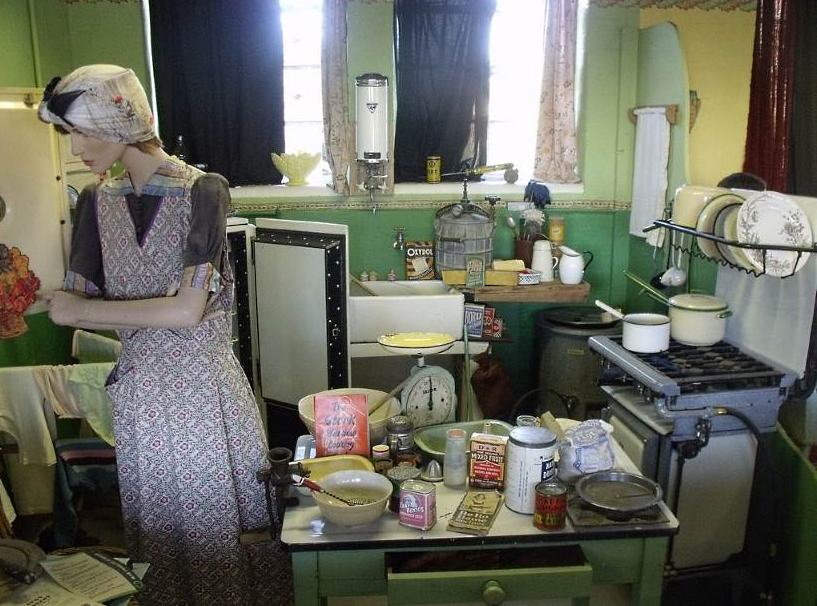This article featured in the Bromley & District Times in August 1940, providing advice to housewives to help the with the organisation of the kitchen and larder to cope with any eventuality in this current conflict.
The wise housewife will already have laid in her emergency larder.
Inspect the Home Larder and Kitchen Front
The Kitchen Front will play an ever-increasing part in the present conflict, and the housewife has now an excellent chance to prove her organising ability and foresight in planning her home larder and kitchen front so that she can cope with any eventually.
On the subject of food, there are many simple little economies which the housewife can practice. Eggs, for instance, are too much of a luxury nowadays to be used for making custards. But sweetened custard powders, or custards made from ordinary custard powders and a full-cream sweetened tinned milk are excellent substitutes and require no part o the sugar ration for sweetening.
Full-cream condensed milk, both the sweetened and unsweetened variety, has many uses in war-time menus. The sweetened kind is invaluable for making milk puddings, sweet sauces and for use in cake-making. The unsweetened kind, apart from being used diluted in water in place of fresh milk, is an economical substitute for cream on fruit, puddings and cereals. Both varieties are well-known as baby foods.
SAVING ON FUEL
Multiple steamers are becoming popular in the kitchen. Housewives are learning the art of cooking a complete meal over one burner or hot-plate; joint or mean stew in the lower container, vegetable and pudding above. If the oven is being used the whole meal is more carefully planned so that all available space in the oven is made use of.
The Kitchen boiler also plays its part in the anti-waste campaign. Much kitchen rubbish, hitherto thrown into the dustbin, can be burnt in the boiler, after essential salvage has been sorted out.
THE EMERGENCY LARDER
The wise housewife will already have laid in her emergency larder. This however, should be checked up from time to time, and items used in rotation and replaced, so that the store is always fresh. If the labels on the tins are dated it will be found a convenience in using up the old stock first.
Tinned fruit and vegetables, however, lose something of their freshness and good appearance if kept longer than 12 -18 months, Tinned butter and other fats are also best used within 18 months.
Cereals and flour will keep well if supplied in hermetically sealed containers and kept in a cool, dry atmosphere. Otherwise they are liable to go sour. Flour which is kept in bags or cartons should be “aired” frequently to keep it sweet by pouring it into another bag.
Source: Bromley & District Times, 16th August, 1940 (page 2)






